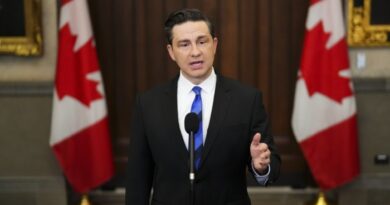The study suggests that Canadians’ ability to make personal and economic choices has increased since hitting a two-decade low in 2020 during COVID-19 restrictions, although it remains below pre-pandemic levels.
This trend is part of a global pattern observed since the pandemic, with nearly 90 percent of people in 165 countries experiencing a loss of freedom between 2019 and 2022, according to the
Human Freedom Index released by the Fraser Institute and Cato Institute on Dec. 17, 2024.
Although human freedom increased in most countries in 2022, it remains significantly lower than pre-pandemic levels, according to the report.
The authors of the report define human freedom as “the absence of coercive constraint” and used more than 80 indicators to measure it, including areas such as religious freedom, freedom of expression, freedom of movement, property rights, and government size.
The report ranked Canada as the 11th freest country based on 2022 data, an improvement from the previous year. However, Canada no longer ranks among the top 10 freest countries, a position it held for a decade before the pandemic.
Canada scored highest in areas related to relationships, earning full points in categories such as divorce, same-sex relationships, and inheritance rights. The country also received high scores for freedom of speech, press, movement, and religious freedoms.
Globally, the pandemic and its aftermath resulted in significant declines in freedoms, particularly in areas like movement, expression, association, assembly, and access to sound money.
Size of Government
Canada’s lowest score came from its government size, with most provinces seeing growth in government spending and public-sector employment rates by 2022. This growth has been identified as a key social and economic indicator.
The authors noted that when government size exceeds optimal levels, it can have negative effects on the economy without providing proportional benefits.
Other low scores on Canada’s freedom index this year related to business regulation, transfers and subsidies, tariffs, and government ownership of assets.
Human Freedom Around the World
Switzerland topped the rankings for human freedom, while Syria had the least. Other countries such as Japan, Germany, the United States, the United Kingdom, India, Russia, and China also received rankings in the report.
The authors found that a small percentage of the world’s population lives in the freest countries, with those in freer jurisdictions tending to have higher incomes, greater life satisfaction, and less extreme poverty.
The authors discussed how government can either prevent or safeguard individual choice by limiting or protecting people, their property, and their decisions.



